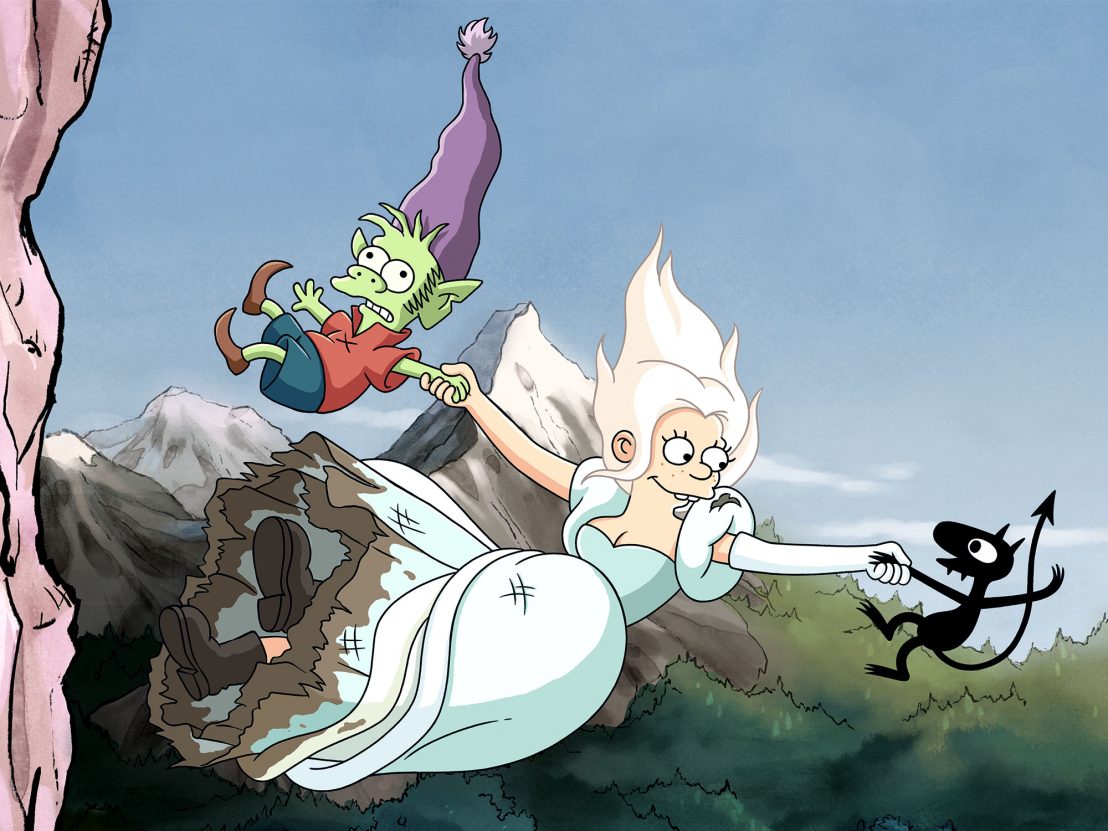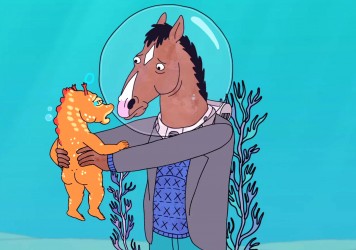
The man who created a TV institution, Matt Groening, has entered the world of streaming with Disenchantment. The animated show is a fantasy comedy set in Dreamland, a world of magic, elves, witches and a princess. Except, this princess isn’t exactly traditional. Alcoholic, irresponsible and rebellious, Princess Bean is the antithesis of what is expected of royalty, screwing up missions and taking drugs with her companions, an awkward lovelorn elf and a personal demon who may have more morals than she does. As subversive a character as Bean may be in the context of the fantasy genre, for Groening she is merely a continuation of his lovable, flawed heroes.
“I don’t know why I did it, I don’t know why I enjoyed it, and I don’t know why I’ll do it again.” This quote, from the 1990 Simpsons episode ‘Bart Vs Thanksgiving’, sums up the mentality of one of its protagonists beautifully. Bart Simpson is a family-friendly anarchist, a brat who destroys, vandalises and pranks for the simple pleasure of it. Whether fizzing up beer or assuming the guise of graffiti scourge ‘El Barto’, the goal is not to send any kind of message, it’s simply to observe the chaos and cackle.
In many ways, it’s a family trait. His father Homer is motivated by self-interest, embarking on the wildest of schemes on a whim, often disregarding the interests of his family and friends for his own gratification. What Bart is to Chaos, Homer is to gluttony. Hundreds of years later, Futurama’s Bender represents the worst of the bunch. Like Bean, he is a subversion of genre expectations – not a subservient, noble android, but a hard-drinking, thieving, womanising sleaze who would sell out everyone close to him for the right price, or for his own amusement.
Disenchantment fits perfectly into the narrative. The first season’s main focus is Bean’s railing against the wishes of her father, who wants her to be more responsible and ‘princess-like’, turning up drunk to political events and screwing up the smallest of tasks. There are lots of reasons given for her flaws, but perhaps most pressing is her desire to stave off adulthood for just a little while longer, even at the expense of the kingdom.
So why are Bean and her predecessors heroes? Because they are us at our worst. Because responsibility can be annoying and thinking of ourselves is gratifying. They are the part of us that would rather go to the pub than the gym, or watch TV rather than do homework. Best of all, they get away with it. Homer has stumbled into a lifetime of adventures, Bart is arguably happier with his lot than gifted sister Lisa, and Bean has found a new family in a duo of reckless misfits.
The appeal of Matt Groening’s creations can be found in their endurance. The Simpsons is a cornerstone of modern popular culture, while Futurama enjoyed a good run from 1999 to 2013, revived several times by the passion of its fans. After a successful first season, Disenchantment’s Princess Bean has every chance of replicating that success – once her hangover clears up, of course.
Published 16 Sep 2018

By Greg Evans
The tragicomic tale of Frank Grimes from 1997 contains a sharply-observed social critique.

By Tom Williams
The stand out episode of the third season underscores the show’s uniqueness and unpredictability.

Through his cast of complex misfits, the series creator tackles existential themes in a manner unlike any other sitcom or cartoon.